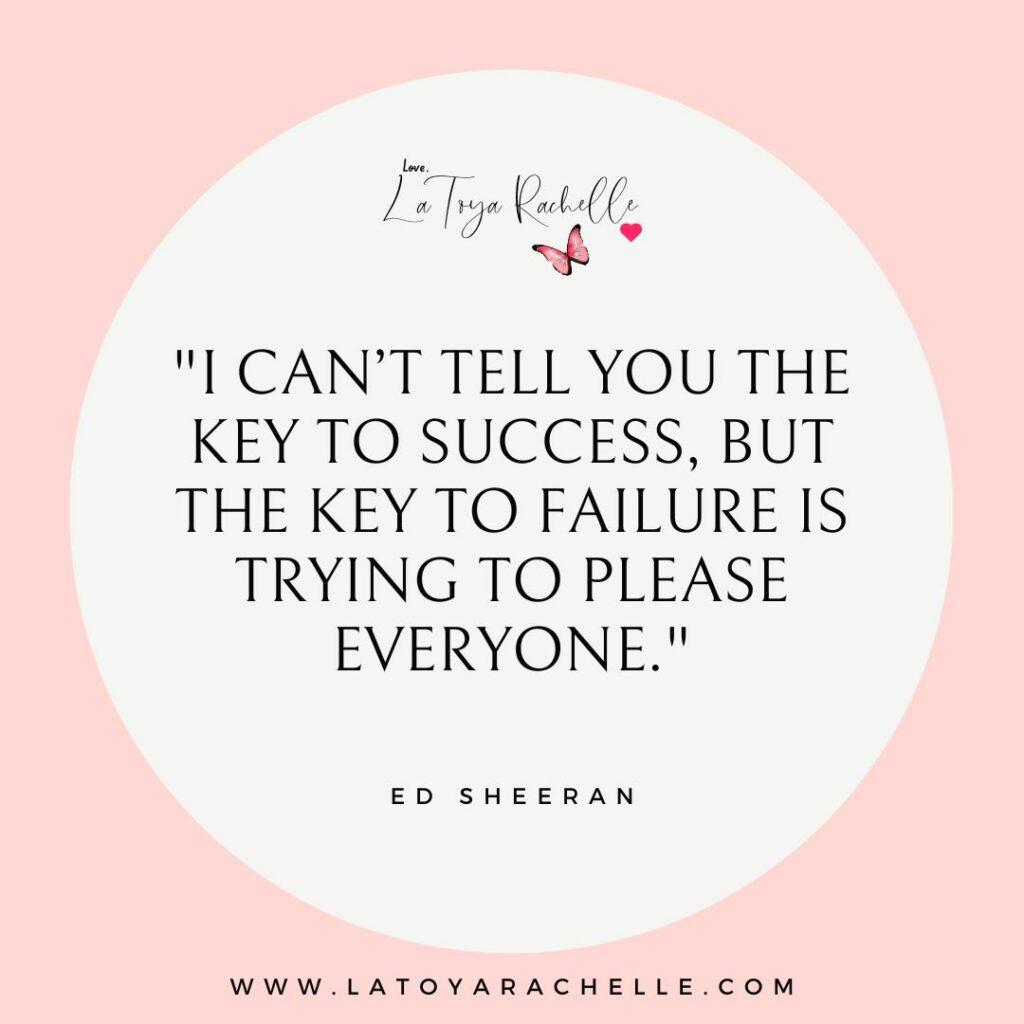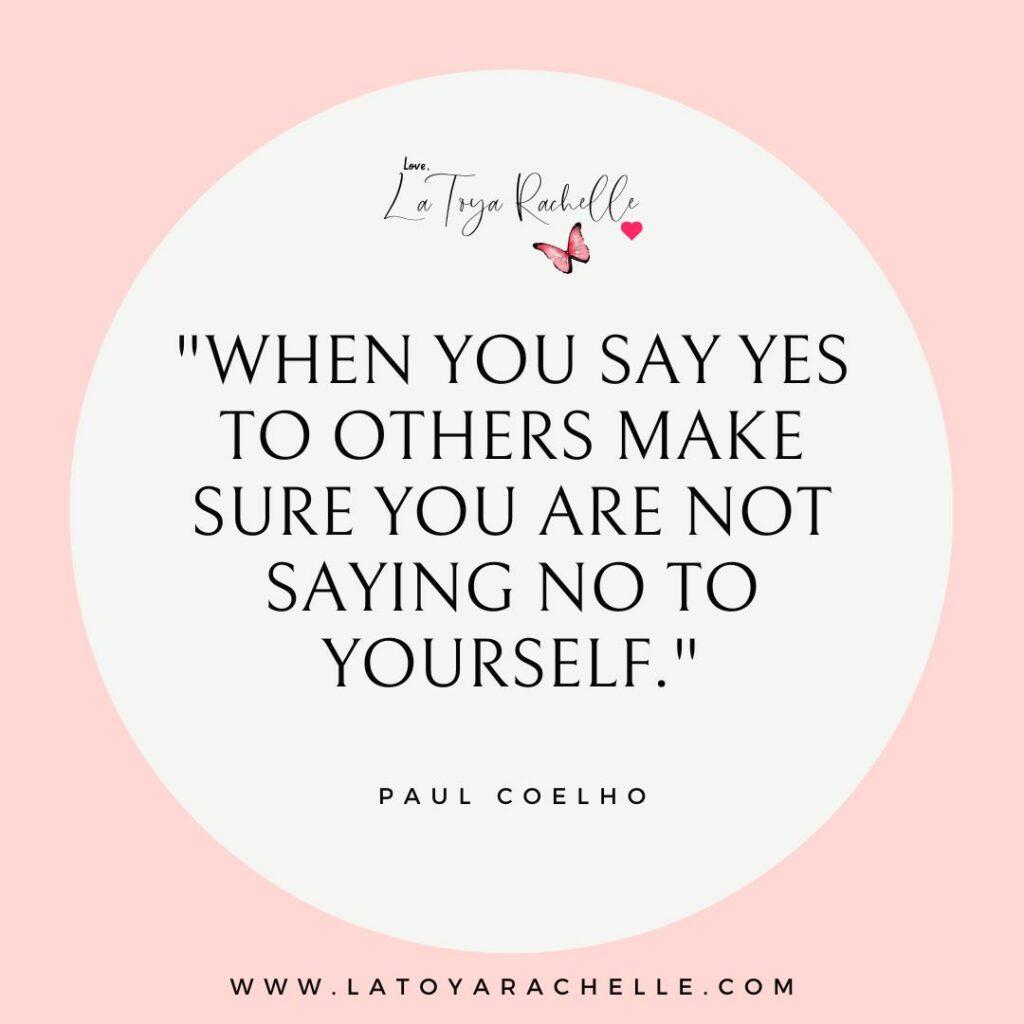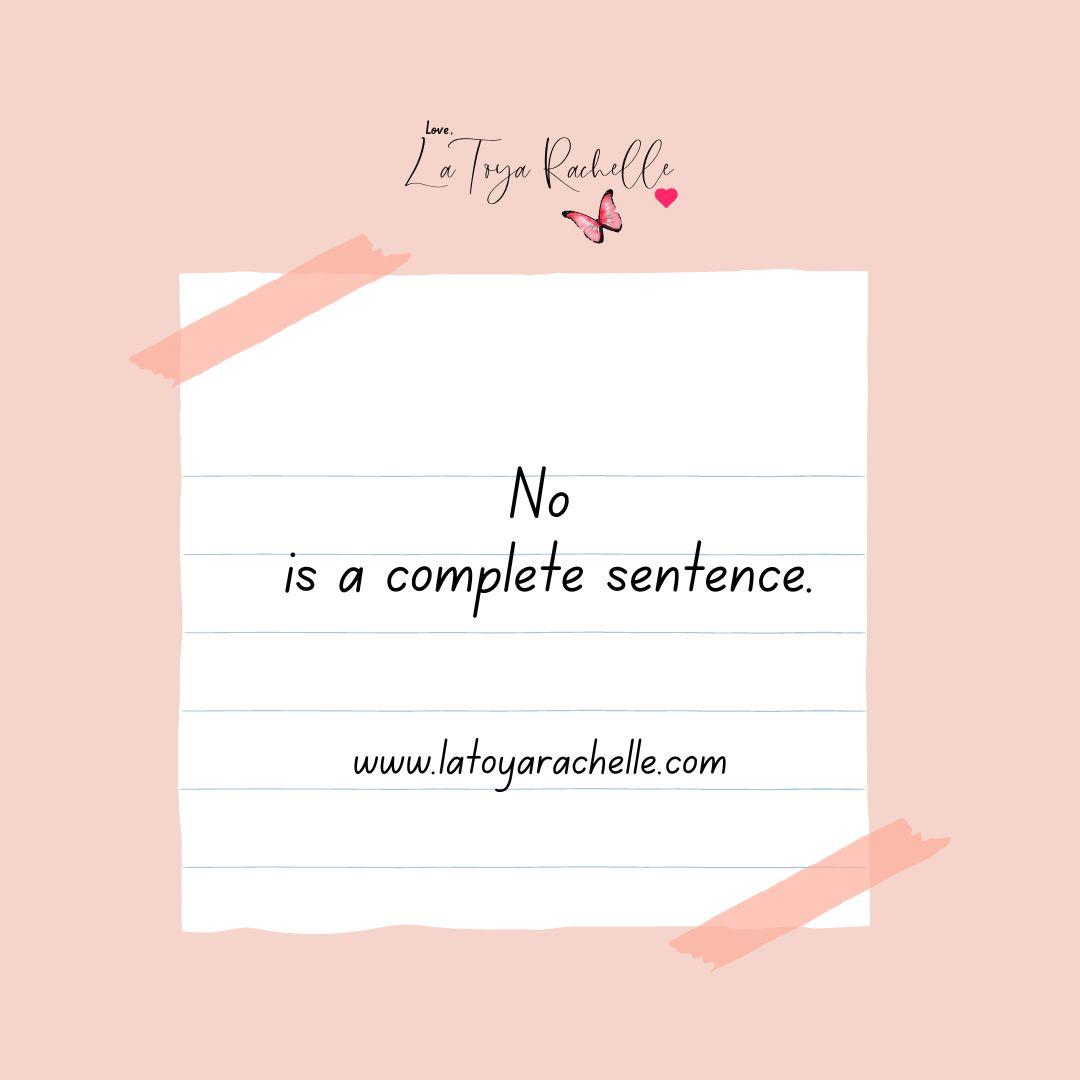The Art of Saying No: How to Stop Being a People Pleaser and Prioritize Yourself
Are you always putting the needs of others before your own? Do you often find yourself saying yes when you really want to say no?
You might be a people pleaser.
We’ve all been there: the feeling of guilt and anxiety when we don’t want to do something someone else wants us to do.
It’s a common trait among women especially, and it often stems from a genuine desire to be liked and accepted. However, in reality, being a people pleaser often just leads to burnout and feelings of resentment instead.

It’s time to stop people-pleasing and start prioritizing yourself.
If you want to learn how to stop being a people pleaser and begin putting yourself first, keep reading to find out how.
SAVE THIS POST FOR LATER
How to Recognize the Signs of a People Pleaser
Alright, let’s get real for a moment. Being a people pleaser can be exhausting!
So how do you know if you’re a people pleaser?
Here are some tell-tale signs:
If you recognize these signs in yourself, don’t worry! Being a people pleaser doesn’t define you.
It’s simply a behavior that can be unlearned and replaced with healthier habits.
Awareness is the first step towards positive change, and now you have it.
So take a deep breath, know that there is a brighter, more authentic version of yourself waiting to shine through, and keep reading for resources and valuable guidance on how to stop being a people pleaser for good.

Embracing The Power of Saying No
Saying no is not about being selfish or rude—it’s about honoring your own needs and establishing healthy boundaries.
It’s about learning how to respect yourself, learning how to stop people pleasing, and putting your own well-being above the expectations of others.
It’s about reclaiming your time, energy, and emotional space so you can make sure they are being used in ways that honor who you are.
When you embrace the power of saying no, you can truly transform your life.
And here’s why.
First and foremost, saying no allows you to prioritize yourself. And when you say no to certain requests or demands, you create space for self-care, personal growth, and pursuing your own passions.
Also, saying no is a powerful way to establish boundaries in your relationships and interactions. It communicates that you have limits and that your needs and values matter.
By defining what is acceptable to you and what is not, you cultivate healthier dynamics and earn respect from others.
Contrary to common belief, saying no can actually enhance your relationships.
When you set clear boundaries and communicate your limits, you foster healthier and more balanced connections.
Saying no also allows you to honor your authenticity.
When you say yes to everything, you are essentially pretending to be someone else—suppressing your true self and putting on a mask to please others.
But when you defy social pressure and allow yourself to be honest with your feelings and desires, you give yourself permission to follow your truth and make choices that resonate with your genuine aspirations, passions, and purpose.
Moreover, saying no strengthens your self-esteem.
Each time you honor your boundaries and say no when it’s necessary, you build self-confidence and reinforce the belief that your needs and choices are valid.
And as your self-esteem grows, you’ll find it easier to make decisions that serve your own happiness.
Next up, let’s delve deeper into practical tips and strategies to help you stop being a people pleaser and learn how to say no with confidence.

How to Overcome Your People-Pleasing Habits
Now that you’ve made the decision to stop people pleasing and start saying no when that’s what you really mean, doing so will likely take a little practice.
Here are some tips and strategies to get you started:
- Start small by saying no in low-stakes situations and to the little things that aren’t particularly important to you. Doing this will help build your confidence and make it easier to decline bigger requests in the future.
- Be honest and direct. You can explain why you’re saying no in a straightforward manner without getting overly apologetic about it. There’s no need to make excuses or explain yourself more than necessary; be confident in your decision and move on.
- Prioritize yourself and don’t be afraid to set boundaries. The truth is you don’t owe anyone an explanation at all for why you’re saying no. Still, it’s wise to remain firm yet compassionate when expressing your limits should you decide to state your reasons. Being clear and kind in your communication can help to preserve the relationship while also still honoring your own needs.
- Be mindful of your triggers. Pay close attention when people try to manipulate or guilt-trip you into doing things that you don’t want to do. Be firm in your convictions and remember that it’s perfectly valid to say no without feeling guilty.
- Create positive self-talk statements about yourself and practice them regularly. A few examples: “I’m strong and capable of making my own decisions” or “I choose to prioritize myself over others”. Acknowledge that your needs are valid and affirm that you can make decisions on your own.
When you start to implement these strategies, you’ll find yourself gradually breaking free from the grips of people pleasing and embracing a life where your needs and desires truly matter.
Nurturing Self-Care and Self-Worth
Alright, gorgeous, it’s time to shift the focus back to yourself and nourish your well-being. And in this journey to break free from people-pleasing, self-care takes center stage.
Self-care practices come in many forms, and it’s important to find what resonates with you.
It could be engaging in regular exercise to boost your physical well-being, practicing mindfulness or meditation to nurture your mental and emotional health, journaling to process your thoughts and emotions, or simply spending time in nature to reconnect with yourself.
The key is to carve out dedicated time for activities that recharge and rejuvenate you.
Learn to incorporate self-care practices into your daily routine, even if it’s just a few minutes a day.
In addition to self-care, cultivating self-worth is crucial on this journey.
Your self-worth does not and should not depend on external validation or the approval of others. It comes from within.
Acknowledge your strengths, celebrate your accomplishments, and practice self-compassion.
Treat yourself with kindness and gentleness, just as you would treat your bestie, and let go of the need to constantly please others.
You are worthy of love and acceptance just as you are. 💕
Resources for Further Exploration: Books About People Pleasing
Knowledge is power, and when it comes to breaking free from the chains of people pleasing, gaining insights from others can be incredibly empowering.
To help support you on your journey to stop being a people pleaser, I’ve curated a list of insightful books on the subject—books that delve deep into the topic of people pleasing.
Each one of these books offers guidance, practical strategies, and personal stories that will inspire and support you so you can stop people pleasing once and for all.
Disclaimer: This section features affiliate links. If you click on any of the affiliate links and make a purchase within a certain time frame, I’ll earn a small commission. The commission is paid by retailers, at no cost to you. You can read more about our disclaimer policy here. Thank you for your support.
Not Nice: Stop People Pleasing, Staying Silent, & Feeling Guilty… And Start Speaking Up, Saying No, Asking Boldly, And Unapologetically Being Yourself by Dr. Aziz Gazipura

Healthy Boundaries: How to Set Strong Boundaries, Say No Without Guilt, and Maintain Good Relationships With Your Parents, Family, and Friends by Chase Hill

When It’s Never About You: The People-Pleaser’s Guide to Reclaiming Your Health, Happiness, and Personal Freedom by Ilene Cohen

The Disease To Please: Curing the People-Pleasing Syndrome by Dr. Harriet B. Braiker

When Pleasing Others Is Hurting You: Finding God’s Patterns for Healthy Relationships by Dr. David Hawkins

My Final Thoughts
Learning how to say no and stop being a people pleaser is no easy task. It requires self-reflection, understanding why you fell into the habit of being a people pleaser in the first place, and a lot of self-love.
But it’s important work. Learning to prioritize yourself is essential for your well-being, and it will help you become the best version of yourself possible.
Now, it’s time to take action.
Apply what you’ve learned, explore the recommended books about people pleasing, and continue your journey of personal growth.
As you continue your growth, let these words linger in your heart: You are worthy, beautiful, and deserving of a life that honors your true self.
Your voice matters, your needs matter, and your happiness matters.
Thank you so much for allowing me to help guide you on this transformative adventure!
Until next time,
xoxo

TL:DR – How to Stop Being a People Pleaser FAQs
📖 Pressed for time? Check out these frequently asked questions (FAQs) to get quick answers and insights on how to not be a people pleaser.

